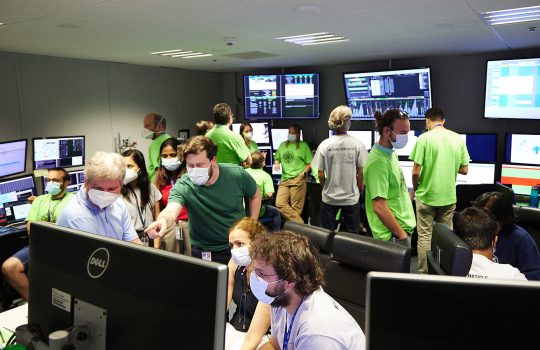Tetraquarks and pentaquarks: “Unnatural” forms of exotic matter have been found
From The Big Think, July 16, 2022: Fermilab’s Don Lincoln writes about the evolution of new exotic forms of matter known as tetraquarks and pentaquarks. By studying these particles, it can help scientists understand the strong nuclear force inside atoms and provide insights into the early Universe.


